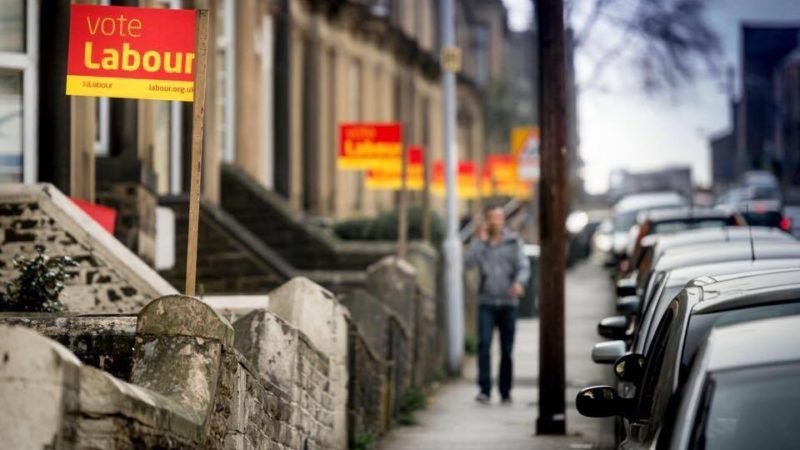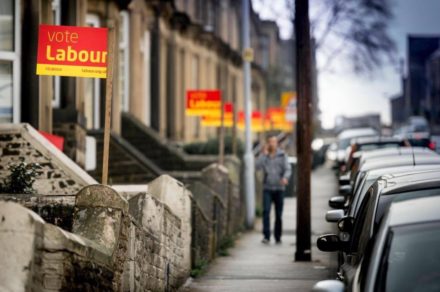

The national executive committee (NEC) equalities, disputes and organisational committee meetings took place on 17 January. The NEC discussed the following:
Women’s conference
Labour Party conference in September agreed to give policy-making powers to women’s conference. Members and affiliates will be able to send delegates to discuss and debate policy. Women’s conference will still be open to everyone interested in attending with the hope that it will retain its lively, informal and welcoming atmosphere. In 2017 it will take place immediately before the national conference in September. The NEC women’s conference working group, chaired by Ann Black, is considering whether the event should be moved to the spring in future years to be a standalone conference. We will be consulting members to see which option will be preferable.
Increasing women’s representation in politics
Jess Phillips presented the women and equalities committee report on women in the House of Commons after the 2020 report to the NEC equalities committee. This cross-party report calls on all political parties to committee to having at least 45 per cent of female candidates for parliament and local government elections by 2030. The equalities committee noted the recent NEC commitment to expand the use of all-women shortlists in local government selections and consider ways to make parliament and local government more family friendly. The Jo Cox Foundation will support some of this important work. The NEC also discussed the importance of maintaining the proportion of female and BAME MPs following possible boundary changes.
Improving political representation of disabled people
The NEC equalities committee discussed the ongoing work to improve political representation of disabled people at all levels. A consultation on LGBT and disabled issues has been circulated to CLP secretaries and relevant CLP officers. Please do get in touch if with staff you have any questions about this or want to make a submission.
Report from the women’s PLP and shadow equalities team
Jess Philips talked about the forthcoming women’s PLP campaigns, which will include campaigns around childcare, maternity and paternity rights, women in the economy, the impact of Brexit and austerity of women and protecting our rights at work.
Sarah Champion gave a presentation on her shadow equalities brief, including work on the opposition day debate on women in the economy and the recent Labour commitment to gender audit all our policies. She spoke about the Labour work to challenge and tackle maternity discrimination, violence against women and girls, honour based violence, FGM and forced marriages and ensuring there is proper support and refuge provisions for victims of domestic violence. She talked about plans to re-establish the all-party parliamentary group on FGM. She also spoke the work to support LGBT rights in Britain and internationally, including the shocking statistic that one in five young LGBT people attempt suicide.
She also praised Paula Sheriff’s work tackling consumer inequality, including VAT on sanitary products and the differences in prices between male and female razors. Finally she spoke about the Casey report and the importance of tackling social inequality, as well as working to improve the culture within the Labour Party to make sure it is a welcoming place for women, LGBT, BAME, disabled people and other traditionally under-represented groups.
Motions to the NEC
The NEC organisational committee received all the recent motions from local parties and affiliates on organisational matters. While some of the motions were contradictory, it was a useful illustration of a range of members’ views for the NEC to note and reflect upon.
Labour Party constituencies in special measures
The organisational committee discussed a paper outlining the various different circumstances of each CLP currently in special measures. Over the course of time, the NEC and staff will work to resolve the relevant issues and devolve power back to local areas. Labour will also work to ensure relevant training and support is given to local members in running meetings and dealing with local challenges that may arise.
Dealing with complaints
The governance and legal unit has been given more resources to better deal with complaints, safe guarding and legal issues. In order to make Labour’s complaint procedures clearer, fairer and more transparent all complaints will now be directed to one central contact.
Bullying and harassment
Work continues to draft Labour’s new bullying and harassment policy, including a new policy for reporting and responding to complaints of sexual harassment (an issue all political parties have been examining in the light of recent high profile scandals). It was agreed that Labour Women’s Network would work with colleagues on the NEC to bring this new policy to a future meeting.
Review of disciplinary procedures
Labour is adopting recommendations from the Royall Report and Chakrabarti Report to improve disciplinary procedures. This will include introducing a broader range of sanctions so action can be proportionate to the relevant offences. These sanctions could include auto-exclusion, exclusion, warnings about future conduct, suspension of rights/some rights associated with membership for a period of time, suspension from holding office for a period of time etc. Detailed changes to rules and procedures will be brought to future NEC meetings
Rules for quorum
Ann Black brought forward a very sensible paper on the rules for meeting quorum. In the light of recent membership growth, it is unlikely that 25 per cent of members will attend local party members. A range of meeting quorum levels was discussed with recommendations to be made to regional directors.
Resources for local government elections
I raised the issue of resources for local government elections this year and asked that this been discussed at next week’s full NEC meeting. It is important that the whole party support efforts in Copeland and Stoke-on-Trent Central, while at the same time ensuring local parties are properly resourced for May’s elections. It is particularly important that organisers are in place to prepare for May’s elections, as well as a snap general election should one be called.
Standing candidates in Northern Ireland
Elections will take place in Northern Ireland in March. The Labour Party will not stand candidates in this election. The NEC periodically reviews the decision about whether Labour should stand candidates in Northern Ireland. The next review will take place later this year.
Questions
I am aware that on the day the prime minister announced plans for Brexit, we spent close to seven-and-a-half hours discussing party administration, but this is the function of Labour’s NEC. Please do get in touch if you have any questions. You can also sign-up to receive my reports. The next full NEC meeting is next Tuesday.
Alice Perry represents local government on Labour’s NEC.




More from LabourList
Letters to the Editor – week ending 1 March 2026
‘I spent years telling workers the law couldn’t help them – that has changed’
Josh Simons resigns as Cabinet Office minister amid investigation